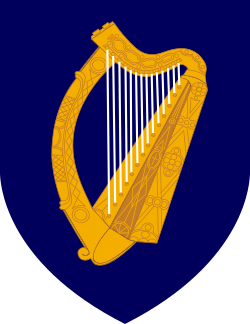| Bederev v Ireland | |
|---|---|
 | |
| Court | Supreme Court of Ireland |
| Full case name | Bederev v Ireland |
| Decided | 22/06/2016 |
| Citation | [2016] IESC 34; [2016] 3 IR 1, [2016] 2 ILRM 340 |
| Case history | |
| Appealed from | The Court of Appeal |
| Appealed to | The Supreme Court of Ireland |
| Court membership | |
| Judges sitting | Denham CJ, O'Donnell Donal J, McKechnie J, Clarke J, MacMenamin J, Dunne J, Charleton J |
| Case opinions | |
| very brief summary. | |
| Decision by | MacMenamin J |
| Concurrence | Denham CJ, O Donnell J, McKechnie J, Clarke J, MacMenamin J, Dunne J, Charleton J, |
| Dissent | None |
| Keywords | |
| Constitution of Ireland, Separation of Powers | |
Bederev v Ireland, [2016] IESC 34; [2016] 3 IR 1, [2016] 2 ILRM 340 [1] is an Irish Supreme Court case which overturned the Court of Appeal's decision that declared s 2 (2) of the Misuse of Drugs Act 1977 unconstitutional on the grounds that it infringed on the exclusive authority of the Oireachtas to make legislation. The Court held that s 2(2) of the 1977 Act contains sufficient principles to allow the government to expand the list of controlled drugs, and is "not an abrogation of the democratic responsibility of the Oireachtas." [2] [3] This case is significant as it resolved the issues arising from the earlier decision of the Court of Appeal which had attracted international media attention by decriminalising certain Class A drugs, ecstasy for example, for a period of 24 hours until the Oireachtas pushed through emergency legislation. [4] [5]